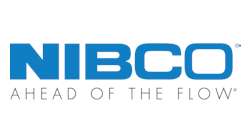BOULDER, COLO. — Although the market for smart communicating thermostats has struggled to gain traction, recent developments — particularly the purchase of smart thermostat maker Nest Labs by Google, for a reported $3.2 billion — indicate that growth is likely to accelerate. According to a recent report from Navigant Research, worldwide revenue from smart thermostats will grow from $86 million in 2013 to almost $1.4 billion in 2020.
“Large retailers, including Lowe’s and The Home Depot in the United States and B&Q in Europe, have begun selling smart thermostats, signaling that sales of these devices could grow in coming years,” said Bob Lockhart, research director with Navigant Research. “It remains to be seen, though, whether marketing efforts on behalf of these retailers will raise the interest of a large pool of customers who are not already planning to replace an existing thermostat.”
For their part, utilities remain cautious about investing in programs and tools that provide incentives for consumers to regulate their energy use. Likewise, vendors have struggled to produce user-friendly solutions with proof of substantial cost savings that will motivate customers outside of the energy-conscious segment. However, the combined factors of increased energy awareness, rising interest in home automation and security tools, and more user-friendly solutions have led to an uptick in shipments for smart thermostats and have revived a sense of optimism and excitement on behalf of vendors and stakeholders.
The report, “Smart Thermostats,” http://www.navigantresearch.com/research/smart-thermostats analyzes the worldwide market opportunities for smart thermostats. It provides an assessment of market drivers and inhibitors, business models, and different technologies associated with the smart thermostat and home automation markets. Global market forecasts for revenue, average selling prices, and shipments, segmented by region and product category, extend through 2020. The report also profiles key industry players and examines specific utility case studies that illustrate different types of smart thermostat-enabled DR and energy efficiency programs at various stages of maturity.

